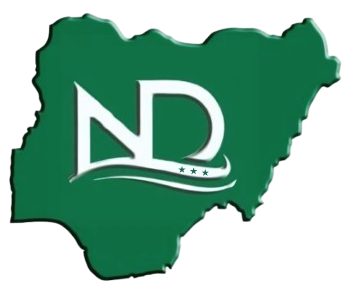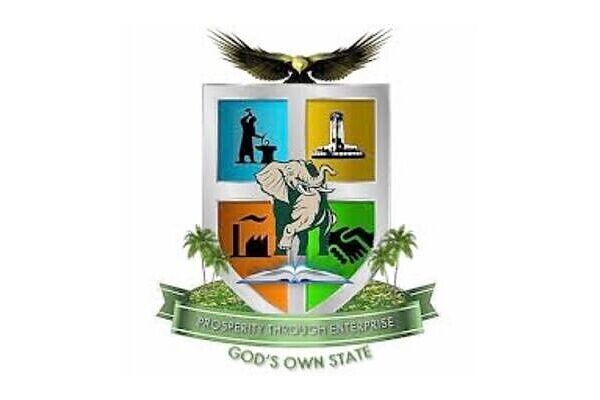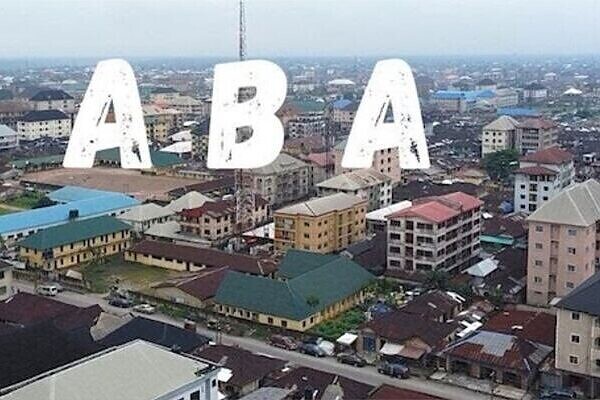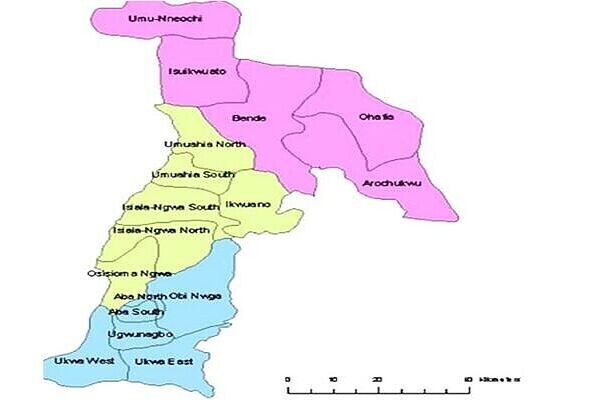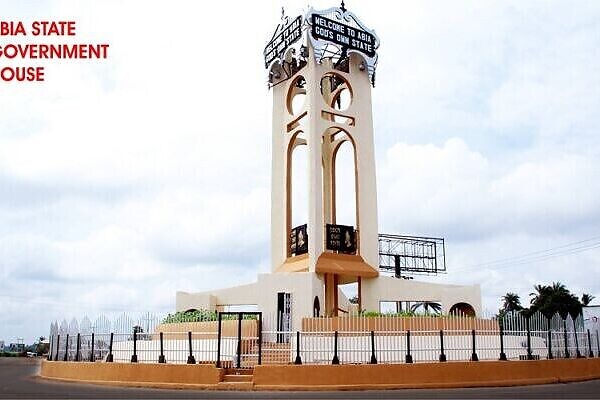- Government Organisation
- Profile
- 1 Library Ave, Umu Obasi, Umuahia 440236, Abia, Nigeria
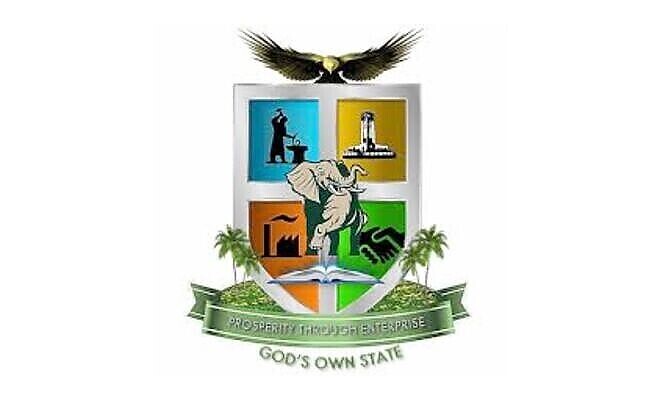
Abia State
Abia State, proudly known as “God’s Own State,” is a vibrant and dynamic state located in the southeastern region of Nigeria. Established in 1991 from the former Imo State, Abia has rapidly distinguished itself as a vital administrative and commercial hub within the nation. The state’s unique blend of cultural heritage, industrious spirit, and strategic importance makes it a cornerstone of Nigeria’s southeastern landscape.
Abia is renowned for its entrepreneurial prowess, particularly in the bustling city of Aba, often referred to as the “Japan of Africa.” Aba has earned this nickname due to its flourishing small and medium-scale industries that drive innovation and economic growth across the region. The state’s commitment to commerce, coupled with its rich cultural traditions, positions Abia as a beacon of progress and resilience in Nigeria.
Brief History of Abia State
Abia State (Igbo: Ȯha Abia) is situated in the South-East geopolitical zone of Nigeria. It is bordered to the northwest by Anambra State, to the northeast by Enugu and Ebonyi States, to the west by Imo State, to the east by Cross River State, to the southeast by Akwa Ibom State, and to the south by Rivers State. Notably, Abia is unique among the southeastern states for sharing boundaries with all four of its neighboring southeastern states.
The name “Abia” is derived from the acronym of four significant regions: Aba, Bende, Isuikwuato, and Afikpo. However, Afikpo was later combined with part of Enugu State to create Ebonyi State in 1996. The state capital is Umuahia, while Aba, known as the largest city and commercial hub, stands out as a major center of trade and industry.
As of 2016, Abia is the 32nd largest state in Nigeria by area and the 27th most populous, with an estimated population of over 3.7 million. The state features diverse geographical landscapes, ranging from the Niger Delta swamp forests in the south to the Cross–Niger transition forests and savanna in other parts. Key rivers such as the Imo and Aba Rivers flow along Abia’s western and southern borders, respectively.
Historically, Abia State has been home to various ethnic groups, predominantly the Igbo people. Before the colonial era, the region was part of the Arochukwu-based Aro Confederacy, which was dissolved in the early 1900s following the Anglo-Aro War against British forces. Subsequently, the area was integrated into the Southern Nigeria Protectorate, which later became British Nigeria. Abia played a significant role in anti-colonial resistance, highlighted by the Women’s War that began in Oloko.
Following Nigeria’s independence in 1960, Abia was included in the Eastern Region until 1967 when it became part of East Central State. During the Nigerian Civil War (1967-1970), Abia was part of the secessionist state of Biafra. After the war, the region was reunited with Nigeria, and East Central State continued until 1976 when Imo State, including the area now known as Abia, was created under the Murtala Muhammed regime. In 1991, Abia State was formally established from the eastern portion of Imo State, with further adjustments in 1996 to include parts of its northeast in the new Ebonyi State.
Economically, Abia State is a hub for crude oil and natural gas production, complemented by agriculture, including yam, maize, taro, oil palm, and cassava cultivation. Aba, in particular, is noted for its concentration of medium-scale manufacturing industries. Abia’s rapid population growth and industrialization have contributed to its high Human Development Index, ranking joint-eighth in Nigeria.
Geographical Location and Neighboring States
Abia State is strategically positioned in southeastern Nigeria. It shares borders with Imo State to the west, Ebonyi and Enugu States to the north, Cross River State to the east, and Rivers and Akwa Ibom States to the south. The state capital, Umuahia, serves as the political and administrative headquarters, while Aba stands as the commercial and industrial hub.
Geography
Abia State covers an area of approximately 4,902 square kilometers and is strategically located in southeastern Nigeria. It is bordered to the north and northeast by Enugu (about 25 kilometers) and Ebonyi (roughly 70 kilometers), while to the east and southeast, it shares boundaries with Cross River (around 52 kilometers) and Akwa Ibom (approximately 151 kilometers). To the south and west, Abia is flanked by Rivers State (about 87 kilometers), and to the west, it borders Imo State (18 kilometers) and Anambra (104 kilometers) near the Imo River.
Geographically, Abia is distinguished by its diverse landscapes. The southern region of the state is part of the Niger Delta Swamp Forests, characterized by its rich, wetland environment. In contrast, the northern and central areas fall within the Cross–Niger transition forests, which blend characteristics of both tropical and savanna vegetation. The state benefits from substantial rainfall, averaging around 2,400 millimeters annually. The rainy season is pronounced, typically spanning from April to October, bringing heavy and sustained precipitation.
Key water bodies in Abia include the Imo and Aba Rivers, which are crucial to the state’s hydrology. These rivers flow through the region and eventually make their way to the Atlantic Ocean via Akwa Ibom State, contributing to the state’s ecological and economic activities.
Climate
Abia State, particularly in its major city Aba, experiences a tropical climate characterized by distinct wet and dry seasons, with relatively stable temperatures throughout the year.
Wet Season: The wet season in Aba is marked by warm and frequently overcast conditions. During this period, from April to October, the city experiences significant rainfall, contributing to a lush and verdant environment. The weather during these months is typically warm, with temperatures averaging between 68°F (20°C) and 88°F (31°C). The persistent cloud cover and rainfall can make the atmosphere feel damp and humid.
Dry Season: The dry season, from November to March, brings a stark contrast. This period is characterized by hot and often oppressive conditions. Despite the lower levels of rainfall, the temperature remains consistently high, usually ranging from 68°F (20°C) to 88°F (31°C). The air during this season can become quite dry, though it is less humid compared to the wet season.
Temperature Range: Throughout the year, temperatures in Aba rarely drop below 61°F (16°C) or exceed 91°F (33°C). The average annual temperature remains relatively stable, with minor fluctuations. This stability in temperature means that the city does not experience extreme seasonal variations, making discussions of distinctly hot or cold seasons less relevant.
Best Time to Visit: For those interested in engaging in hot-weather activities, the best time to visit Aba is between late November and early February. During this period, the weather is generally warm and more conducive to outdoor activities, despite the occasional dry season heat.
State Government Structure
Executive Branch:
- The Governor: The executive branch of Abia State is headed by the Governor, who serves as the chief executive officer of the state. The Governor is responsible for implementing state laws, overseeing the state’s budget, and managing resources. The Governor’s office plays a critical role in shaping the economic, social, and political landscape of the state.
- Deputy Governor: The Deputy Governor assists the Governor in executing duties and often oversees specific portfolios within the executive branch. The role of the Deputy Governor is crucial in ensuring the smooth operation of the state’s executive functions, particularly in areas delegated by the Governor.
- Executive Council: The state’s Executive Council, composed of appointed commissioners and special advisers, is responsible for the various ministries that manage sectors such as Health, Education, Agriculture, Finance, and Infrastructure. Each commissioner heads a ministry and is tasked with policy formulation, implementation, and administration within their respective sectors. The Executive Council plays a key role in advising the Governor on matters of state policy and governance.
Legislative Branch:
- State House of Assembly: The Abia State House of Assembly is the legislative arm of the state government, consisting of elected representatives from various constituencies. The House is responsible for making laws, approving the state budget, and providing oversight of the executive branch. Leadership within the House is headed by the Speaker, who presides over legislative sessions. The legislative process involves debate, amendment, and approval of bills that impact all aspects of life in the state.
Judicial Branch:
- Structure of the Judiciary: Abia State’s judiciary is a critical pillar of governance, ensuring the rule of law and justice. The judiciary is structured with the High Court at the apex, followed by Magistrate Courts and Customary Courts. The High Court handles significant civil and criminal cases, while the lower courts manage lesser offenses and civil disputes.
- Chief Judge: The Chief Judge of Abia State leads the judicial arm and ensures that justice is administered fairly and efficiently across the state. The judiciary also plays a role in the interpretation of the Constitution and state laws, providing a check on the powers of the executive and legislative branches.
Key Government Institutions and Agencies
State Ministries and Agencies:
- Major Ministries: Abia State is organized into several key ministries, each responsible for specific sectors:
- Ministry of Education: Oversees the state’s educational institutions, from primary to tertiary levels, and is responsible for formulating policies that enhance educational standards.
- Ministry of Health: Manages public health services, hospitals, and healthcare initiatives aimed at improving the overall health of residents.
- Ministry of Agriculture: Focuses on boosting agricultural productivity through support to farmers, introduction of modern farming techniques, and development of agricultural infrastructure.
- Ministry of Finance: Handles the state’s financial matters, including budgeting, revenue generation, and financial planning.
- Ministry of Works and Infrastructure: Responsible for the development and maintenance of the state’s infrastructure, including roads, bridges, and public buildings.
-
Key Agencies:
- Abia State Internal Revenue Service (ABIRS): This agency is tasked with tax collection and revenue generation, vital for funding state projects and services.
- Abia State Housing Authority: Oversees the development of housing projects and urban planning to meet the residential needs of the state’s growing population.
Local Government Areas (LGAs):
- Overview: Abia State is subdivided into 17 Local Government Areas (LGAs), each serving as a decentralized unit of governance. These LGAs are crucial for implementing state policies at the grassroots level, ensuring that development initiatives reach all parts of the state.
- Functions and Administration: LGAs are responsible for local administration, including primary education, healthcare, local markets, and road maintenance. They act as a bridge between the state government and the local populace, ensuring that local needs are met.
- State-Local Government Relations: The state government provides oversight and support to LGAs, ensuring that they function effectively and efficiently. There is also a collaborative relationship where the state government may step in to provide additional resources or interventions in areas where local governments face challenges.
Economic and Developmental Policies
Economic Overview:
- Major Industries: Abia State is a hub of industrial activity, particularly in the city of Aba, known for its manufacturing of textiles, leather goods, and footwear. The state’s economy is also bolstered by trade, with Aba’s Ariaria International Market being a significant economic driver.
- Agricultural and Mineral Resources: Agriculture is a major component of Abia’s economy, with key crops including palm oil, cassava, yams, and rice. The state also has potential in mining, with deposits of limestone and other minerals.
- Key Businesses and Landmarks: The state’s commercial activities are centered around Aba, which houses numerous small and medium-sized enterprises. Landmark projects such as the Enyimba Economic City aim to transform the state’s economic landscape by attracting investment and boosting industrialization.
Social and Cultural Policies
Cultural Heritage:
- Overview: Abia State boasts a rich cultural heritage, deeply rooted in the traditions of the Igbo people. The state government supports various cultural festivals, such as the New Yam Festival, which celebrates the harvest and serves as a major cultural event.
- Government Support: The state government actively promotes cultural preservation through policies that support traditional arts, crafts, and practices. This includes funding for cultural centers, museums, and festivals that highlight the state’s rich history and traditions.
Opportunities for Growth:
- Economic Diversification: The government is focused on diversifying the economy by promoting sectors such as technology, tourism, and agro-processing. Initiatives aimed at encouraging entrepreneurship and innovation are also being pursued.
- Investment Opportunities: Abia State offers numerous opportunities for investors, particularly in manufacturing, real estate, and agriculture. The government provides incentives, such as tax breaks and access to land, to attract both local and foreign investments.
Raw Materials in Abia State
Abia State is endowed with a range of natural resources beyond its significant oil and gas deposits. Key solid minerals found in the state include:
- Gold: Found in various locations, contributing to the state’s mineral wealth.
- Lead/Zinc: Present in substantial quantities, these minerals are essential for various industrial applications.
- Limestone: Used primarily in construction and cement production, limestone deposits are a vital resource.
- Salt: Extracted from natural deposits, it is a crucial mineral for both consumption and industrial uses.
- Kaolin: A type of clay used in ceramics, paint, and other industrial processes.
- Limestone: This mineral also plays a significant role in the state’s economic activities.
Educational Institutions
Abia State boasts a range of higher education institutions, reflecting its commitment to academic excellence and research:
-
Public Universities:
- Michael Okpara University of Agriculture, Umudike: A federal university specializing in agricultural sciences and technology.
- Abia State University, Uturu: The state-owned institution offering diverse programs in arts, sciences, and social sciences.
-
Private Universities:
- Gregory University, Uturu: Known for its emphasis on holistic education and entrepreneurship.
- Rhema University, Aba: Provides programs in various fields including business, science, and technology.
- Spiritan University, Umu Nneochi: Offers a range of undergraduate and postgraduate programs.
- Clifford University, Owerrinta: A private institution focusing on science, technology, and the humanities.
- Nigerian British University, Asa: Aiming to provide high-quality education with a global perspective.
-
Other Higher Institutions:
- Uma Ukpai Polytechnic, Asaga-Ohafia: Offers technical and vocational education.
- Abia State College of Education (Technical), Arochukwu: Focuses on technical and vocational training.
- Abia State College of Health Sciences and Management Technology, Aba: Specializes in health sciences and management.
- Temple Gate Polytechnic, Aba: Provides technical and vocational programs.
- Abia State Polytechnic: Offers programs in various technical and vocational disciplines.
- National Institute for Nigerian Languages, Aba: A federal institution dedicated to the study and preservation of Nigerian languages.
Transportation
Abia State is well-connected through various transportation networks:
-
Air Travel:
- Sam Mbakwe Cargo Airport (Owerri): Approximately an hour’s drive from Umuahia and Aba, and about two hours from Port Harcourt International Airport.
- Akwa Ibom Airport (Uyo): Located about 73 km from Umuahia, providing additional access for travelers.
-
Rail Transport:
- Aba to Port Harcourt: Regular rail services connect these major commercial hubs.
- Umuahia to Aba and Enugu: Rail links facilitate movement between these key cities.
-
Road Networks:
-
Federal Highways:
- A3: Connects Port Harcourt to Enugu, passing through Umuahia and various towns.
- F103: Links Akwa Ibom to Oron, passing through Ikot Ubo.
- F104: Connects Aba to F103 via Azumini and Etinam.
- F107: Runs from Umuahia to Bende, linking to F234 in Ohafia.
- F108: Connects Arochukwu to A4 via Ikot Okpora.
- F112: The Okigwe-Afikpo road extends from Imo State to Ebonyi State.
-
Major Roads:
- Roads connecting Okigwe to Amiyi-Uhu, and other key areas including Amaba, Umuahia, and Akwa Ibom.
-
Religion
Christianity is the predominant religion in Abia State, influencing the cultural and social life of its residents:
-
Catholic Church:
- Umuahia Catholic Diocese: Established in 1958, it has 70 parishes.
- Aba Diocese: Established in 1990, with 90 parishes.
-
Anglican Church:
- Aba Province: Includes nine dioceses, with a focus on community and spiritual development.
Traditional Titles
Abia State is rich in traditional titles, reflecting its cultural heritage and local governance structures. These include:
- Eze OHA 4th of Aba
- Ochiudo 1 Aba Ukwu
- Oru 1 of Oru Onyerubi
- Osimiri III Aba
- Eze Aro
- Ugwumba 1 Ndida Ozaar
- Ike 1 Ikeisu
- Ezeala III Ngwa
- Ugo Oha (Eze) Etiti Mgboko Umuanunu
- Eze Ukwu 1 Ngwa-Ukwu
- Nya 1 Nunya
- Ossah-Ibeku (Eze) Umuahia
- Eze Uturu
- Igbojiakuru (Eze) Alayi
- Awu (Eze) Isuamawu
- Enachioken Abiriba
- Ohanyere I Ohiya
- Eze Ohanyere I Ahiaba Ubi
- EZE TOWE 1 Umutowe
- Okaa Omee I Amaikwu, Abia
- Ezeudo II Amaitolu Ovungwu Auto. Comm.
- “Ehi II” Ehi na Uguru Auto. Comm, Umuguru
- “Ochi 1” Ochi na Isuochi. Comm, Umunneochi
Culture and Tourism
Abia State boasts diverse cultural and tourist attractions:
-
Historical Sites:
- Arochukwu: Known for its historical significance in the slave trade.
- Azumini Blue River: A picturesque waterside location.
- Amakama Wooden Cave: A natural formation that can accommodate up to twenty people.
- National War Museum, Umuahia: Exhibits related to Nigeria’s military history.
- Ojukwu Bunker, Umuahia: A historical site from the Nigerian Civil War.
- Museum of Colonial History, Aba: Showcases Nigeria’s colonial past.
-
Festivals and Dances:
- Ekpe Festival: Celebrated in Umuahia, showcasing traditional dances and rituals.
- Amafor-Isingwu Iza Aha Ceremony: A biannual traditional event.
-
Crafts and Weaving:
- Akwete Cloth Weaving: A traditional craft from Ukwa-East LGA.
Languages
The primary languages spoken in Abia State are:
- Igbo: The predominant ethnic language.
- Ibibio: Also spoken in parts of the state, reflecting the cultural diversity.
Summary
Abia State’s government is structured to facilitate effective governance, with clearly defined roles in the executive, legislative, and judicial branches. The state’s economy is driven by a combination of industrial activity, agriculture, and trade, with a strong focus on cultural preservation.
Looking ahead, Abia State is poised for continued growth and development, particularly with ongoing efforts to diversify the economy and improve infrastructure. The government’s proactive approach to governance and development promises to enhance the quality of life for its residents.
Abia State remains a key player in Nigeria’s economic and cultural landscape, with its government playing a crucial role in steering the state towards sustainable development and prosperity.
Business Amenities
- Car Parking
-
 Government Organisation
Government Organisation
- Profile
Contact Information
Opening Hours
Contact Business
Contact Business
Additional Information
Additional info

Subscribe now to get direct updates
Join Naijadirectory Newsletter

